Includes per person per night:
- Overnight accommodation
- Breakfast buffet
4.06528661478382 of 5 Stars
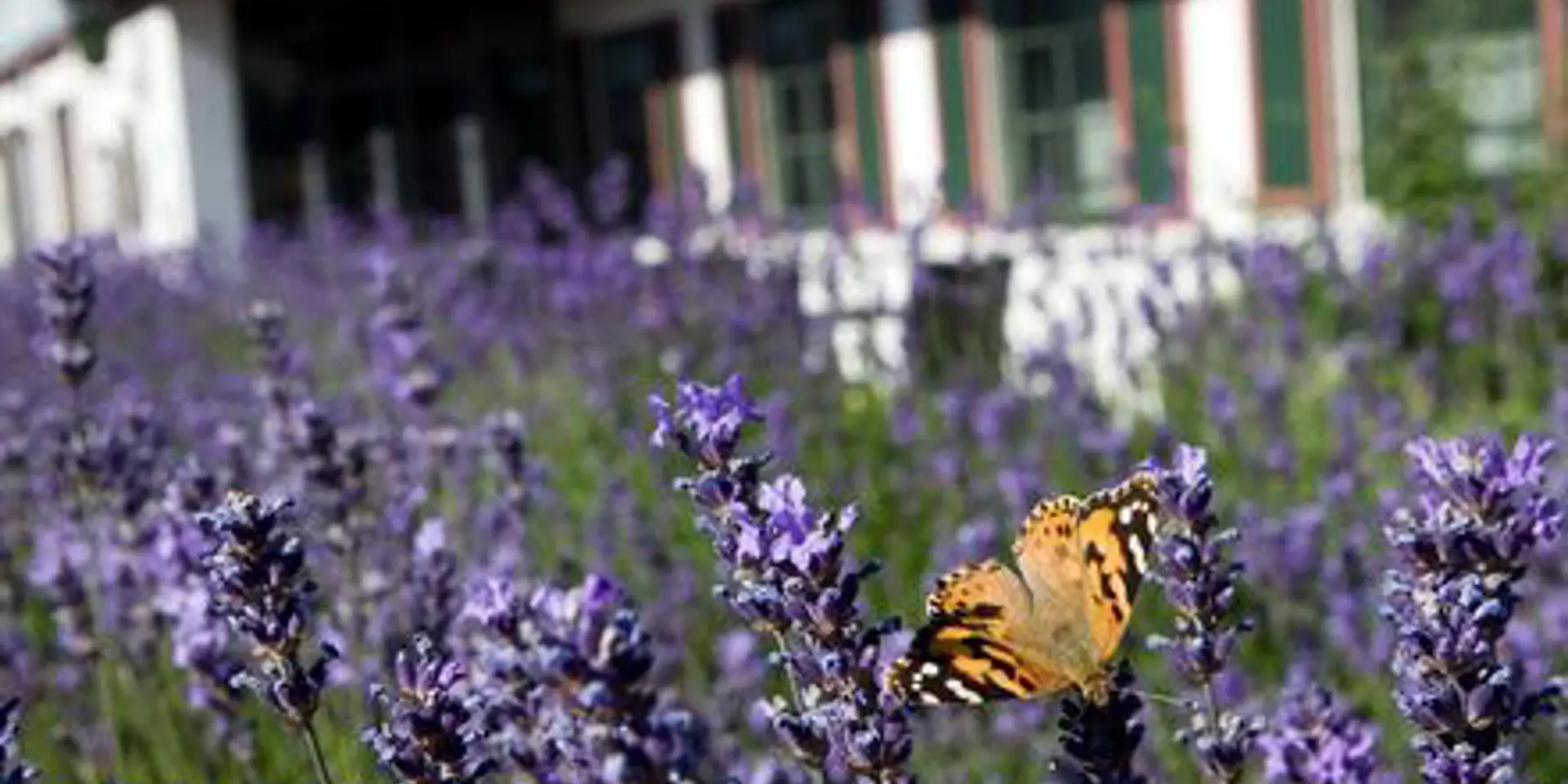
Includes per person per night:
Click the "See calendar and prices" button to choose dates and see the room selection.
See calendar and prices: Super StayMøllegårdsvej 7, 9600 Aars
Show map
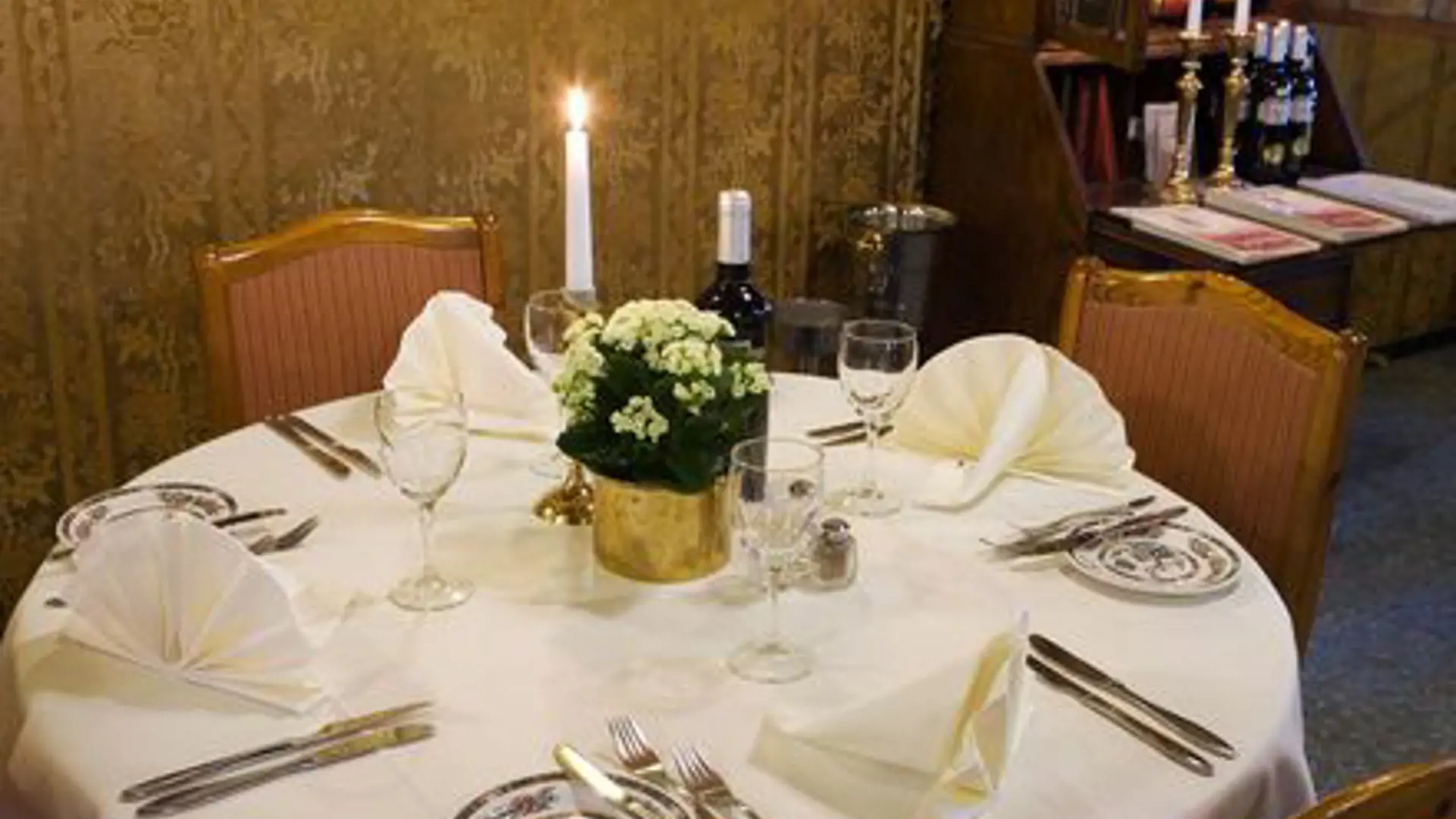
2 days/1 night
Includes per person per stay:
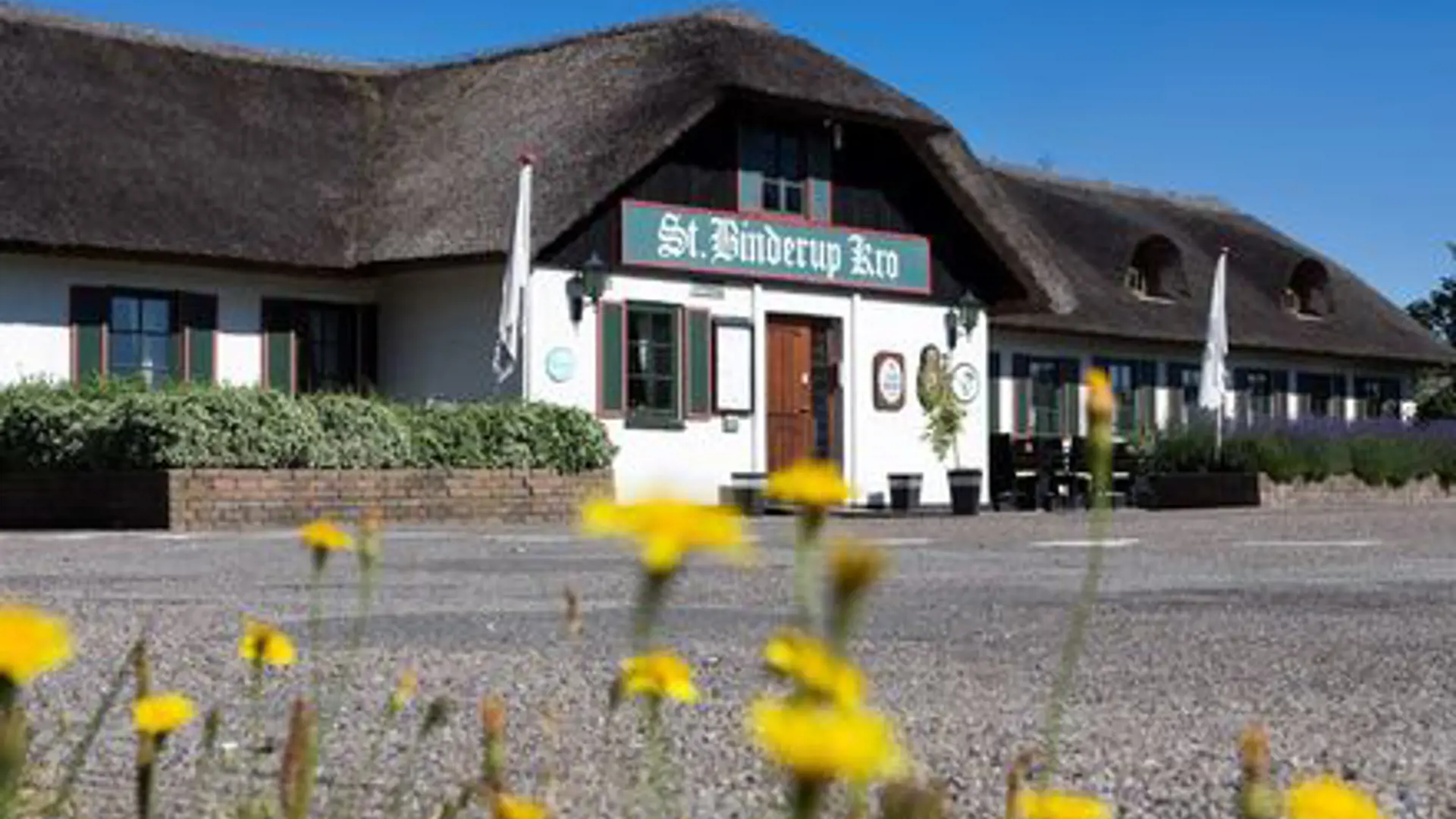
3 days/2 nights
Includes per person per stay:
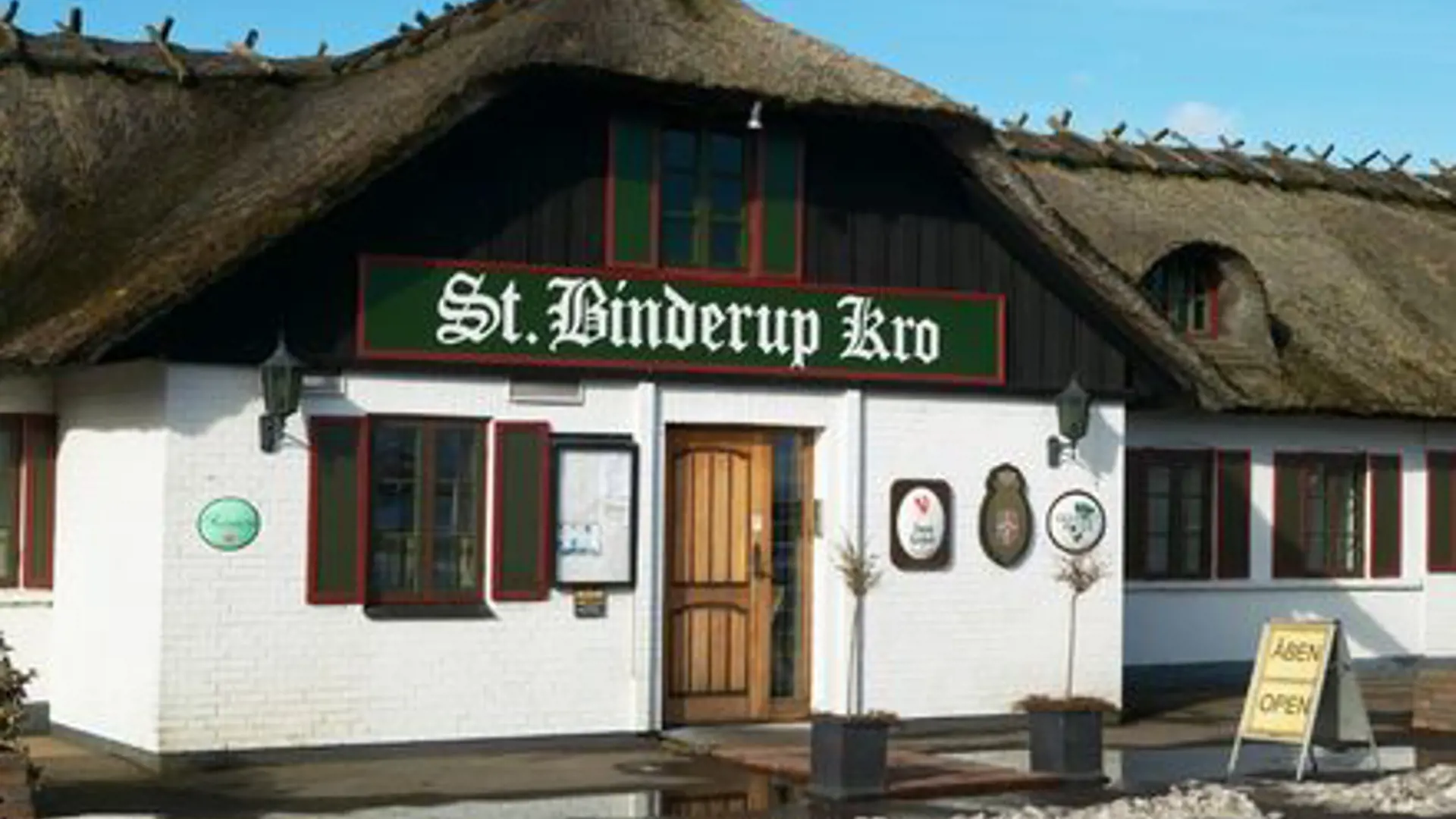
7 days/6 nights
Includes per person per stay:
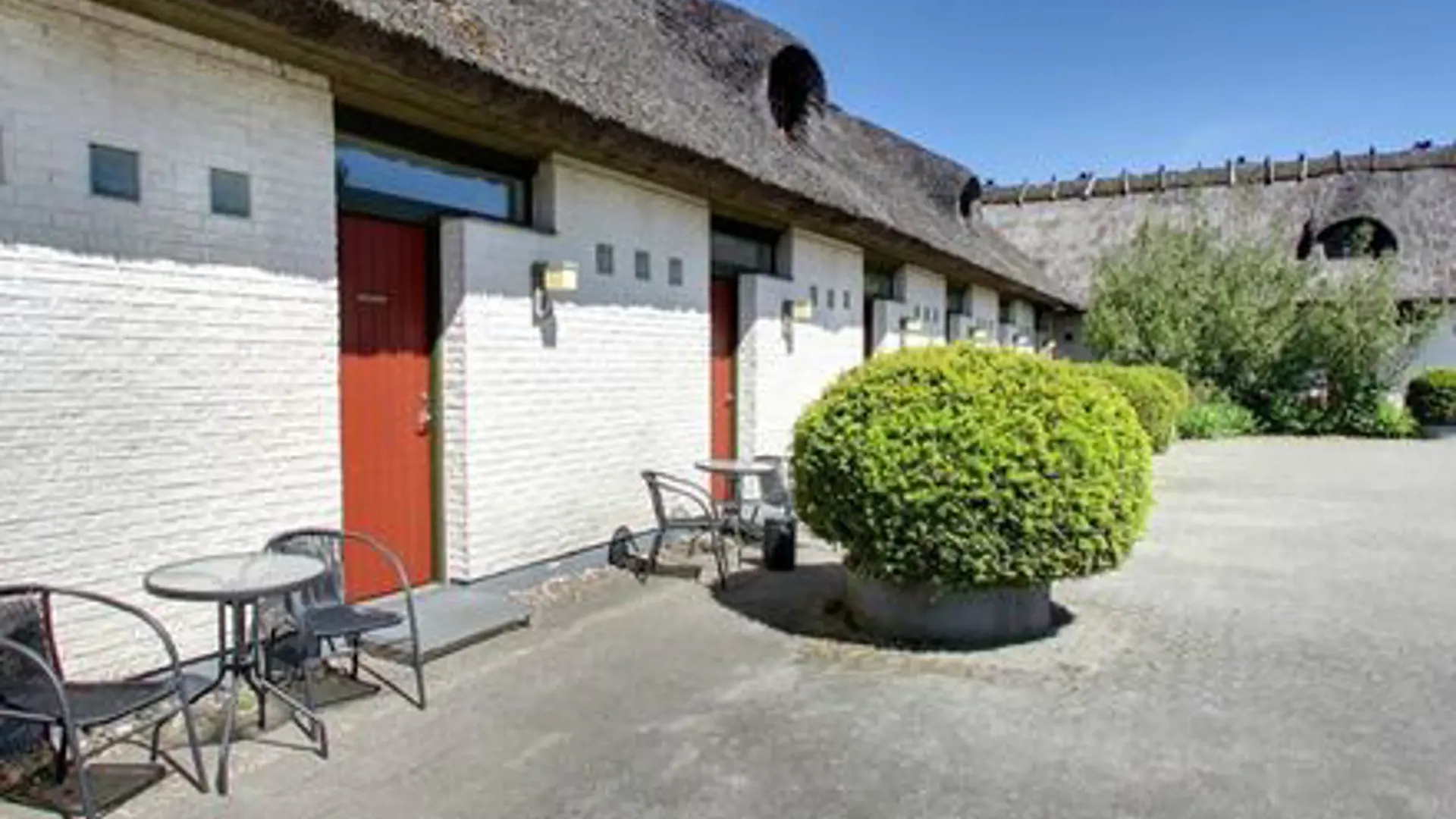
Includes per person per night:
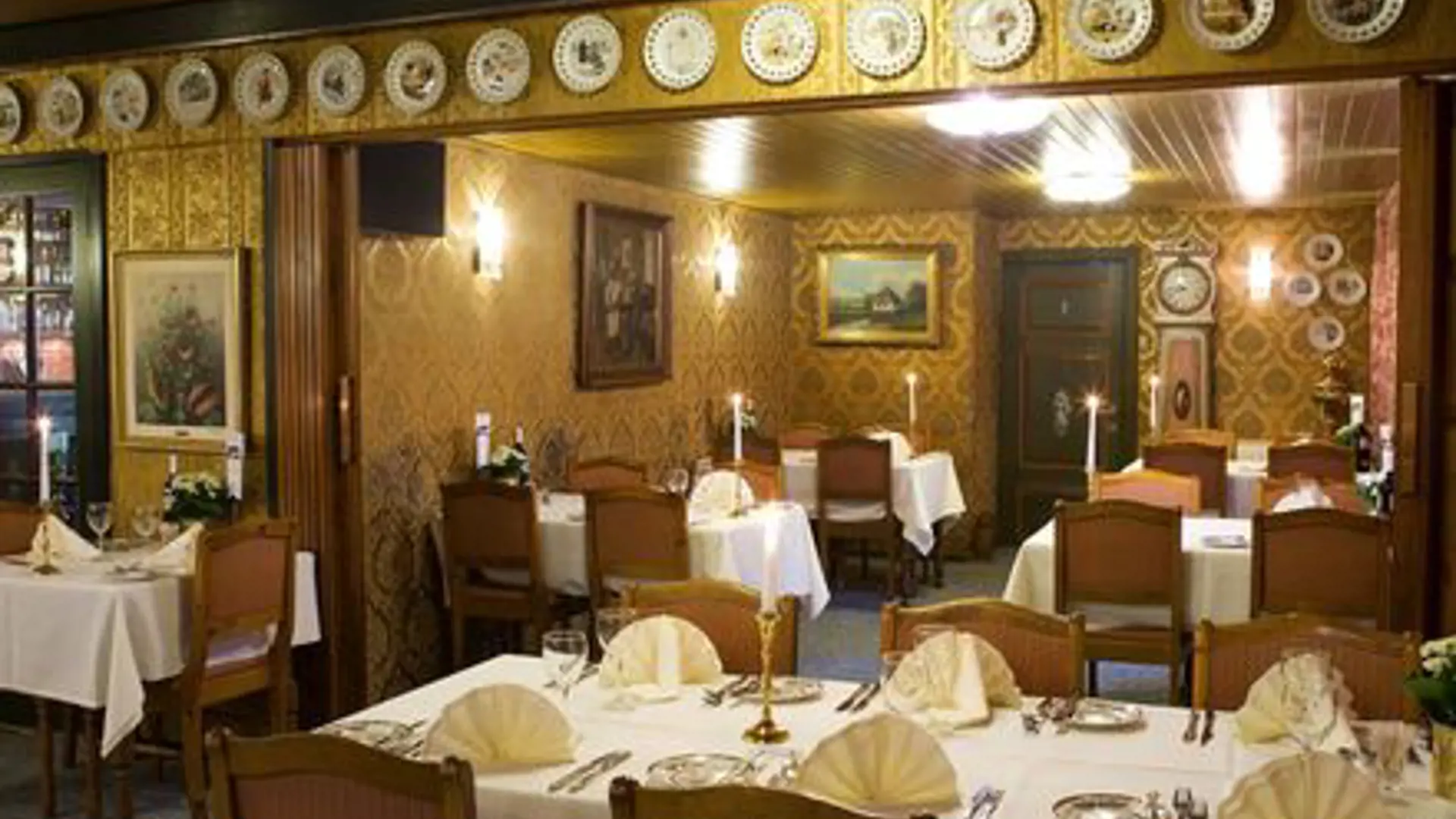
Includes per person per night:
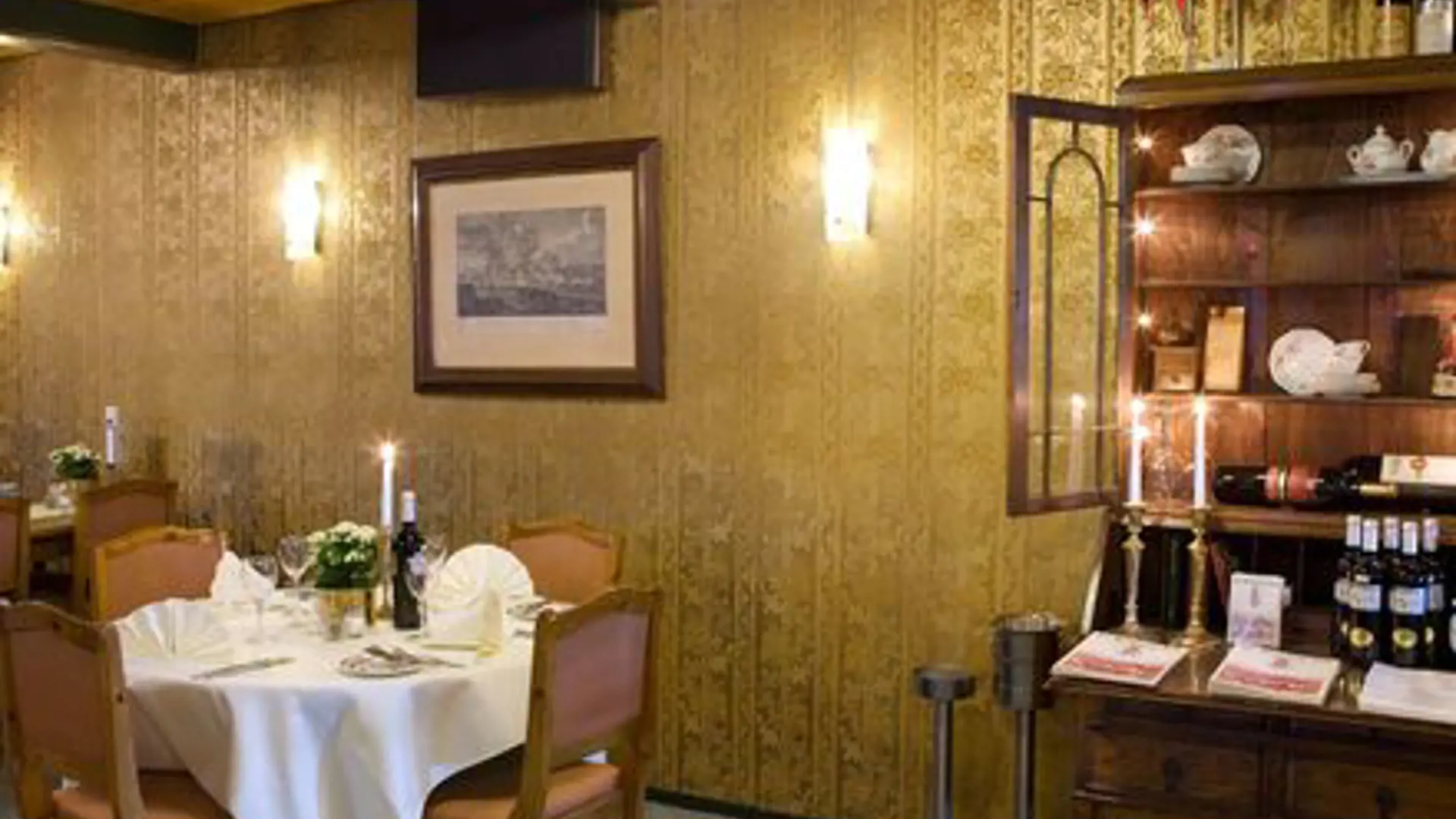
Includes per person per stay:
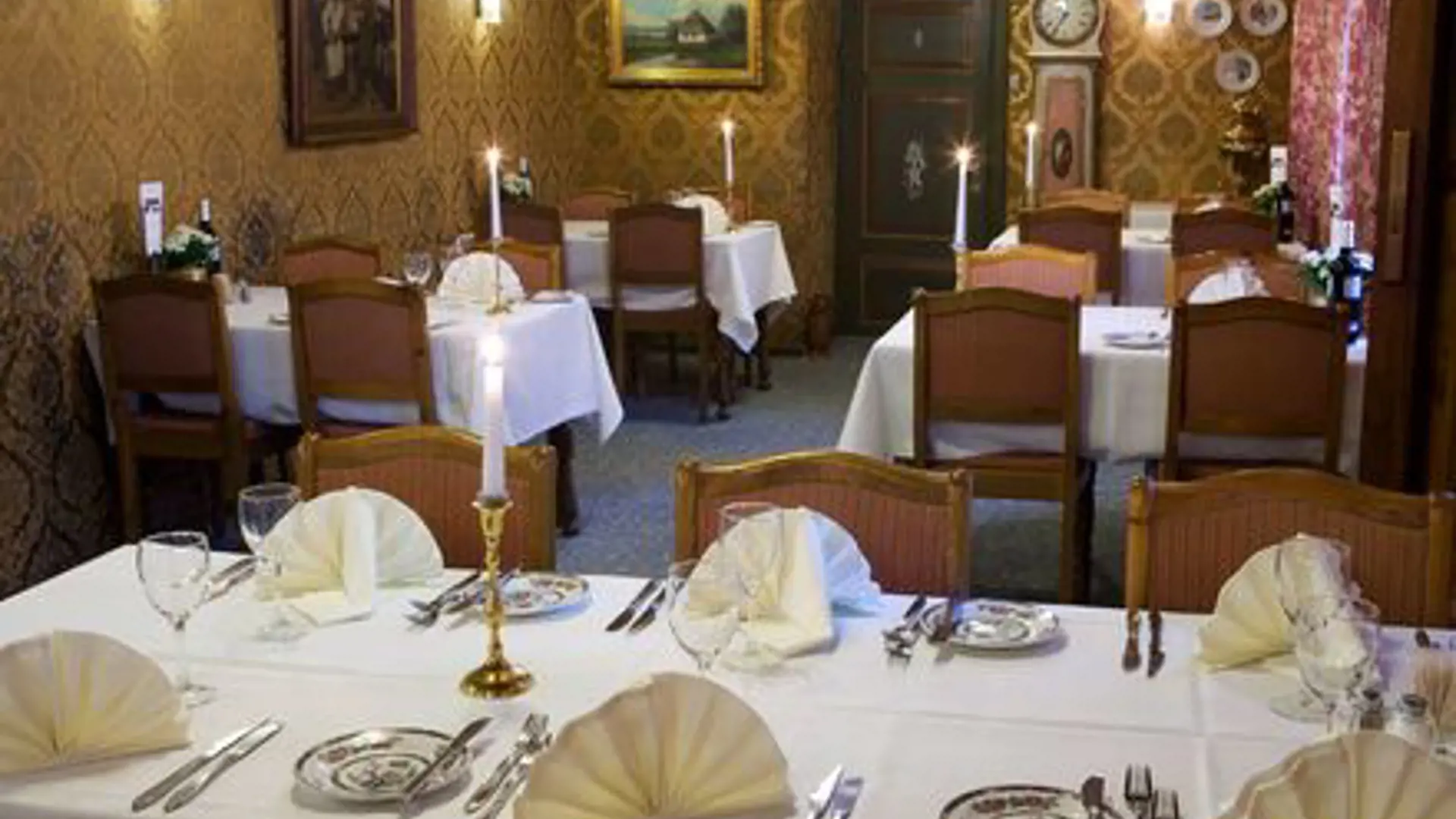
Minimum 3 days/2 nights
Includes per person per stay:
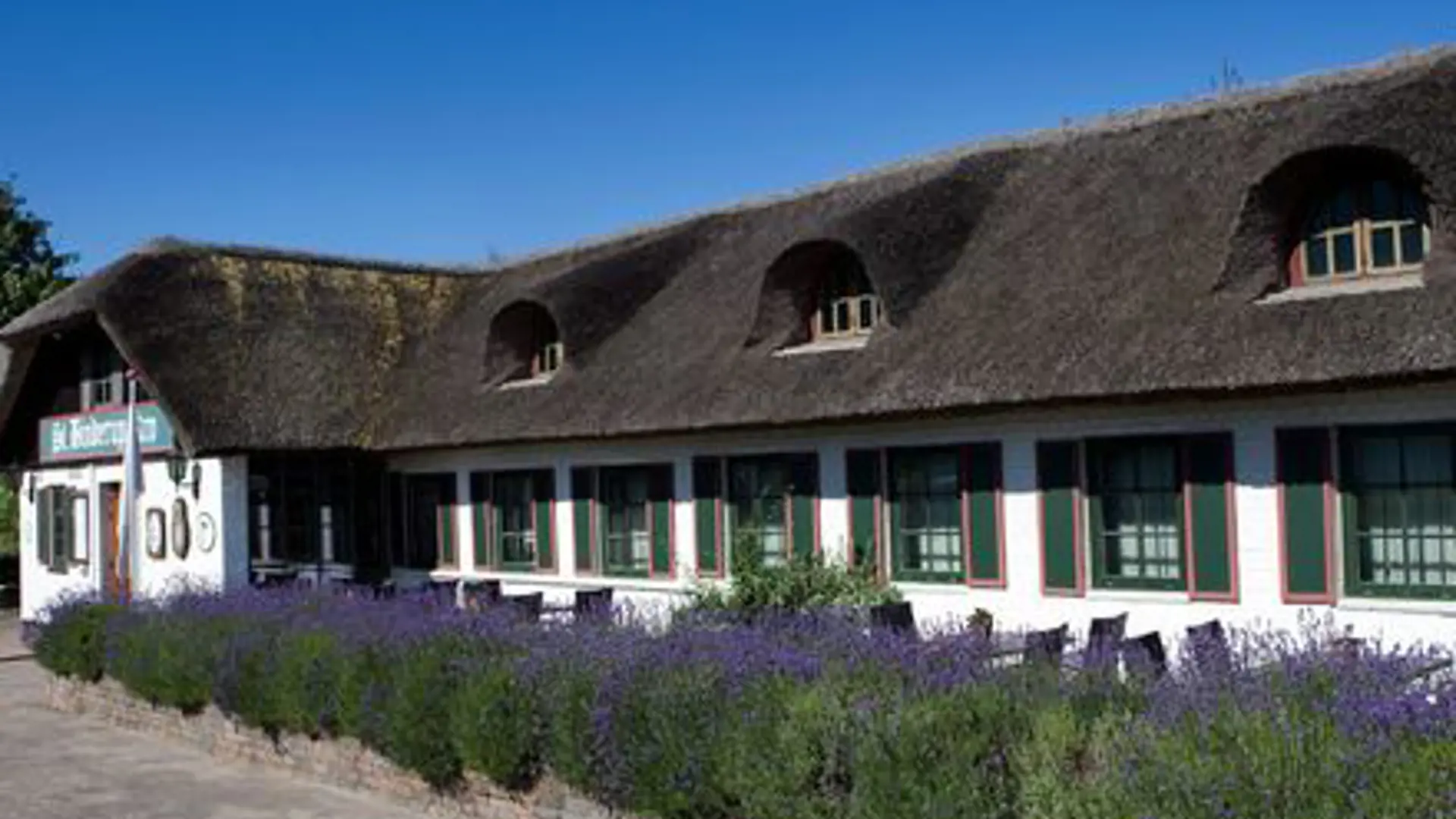
Arrival all days except July and August
The stay includes per person per stay:
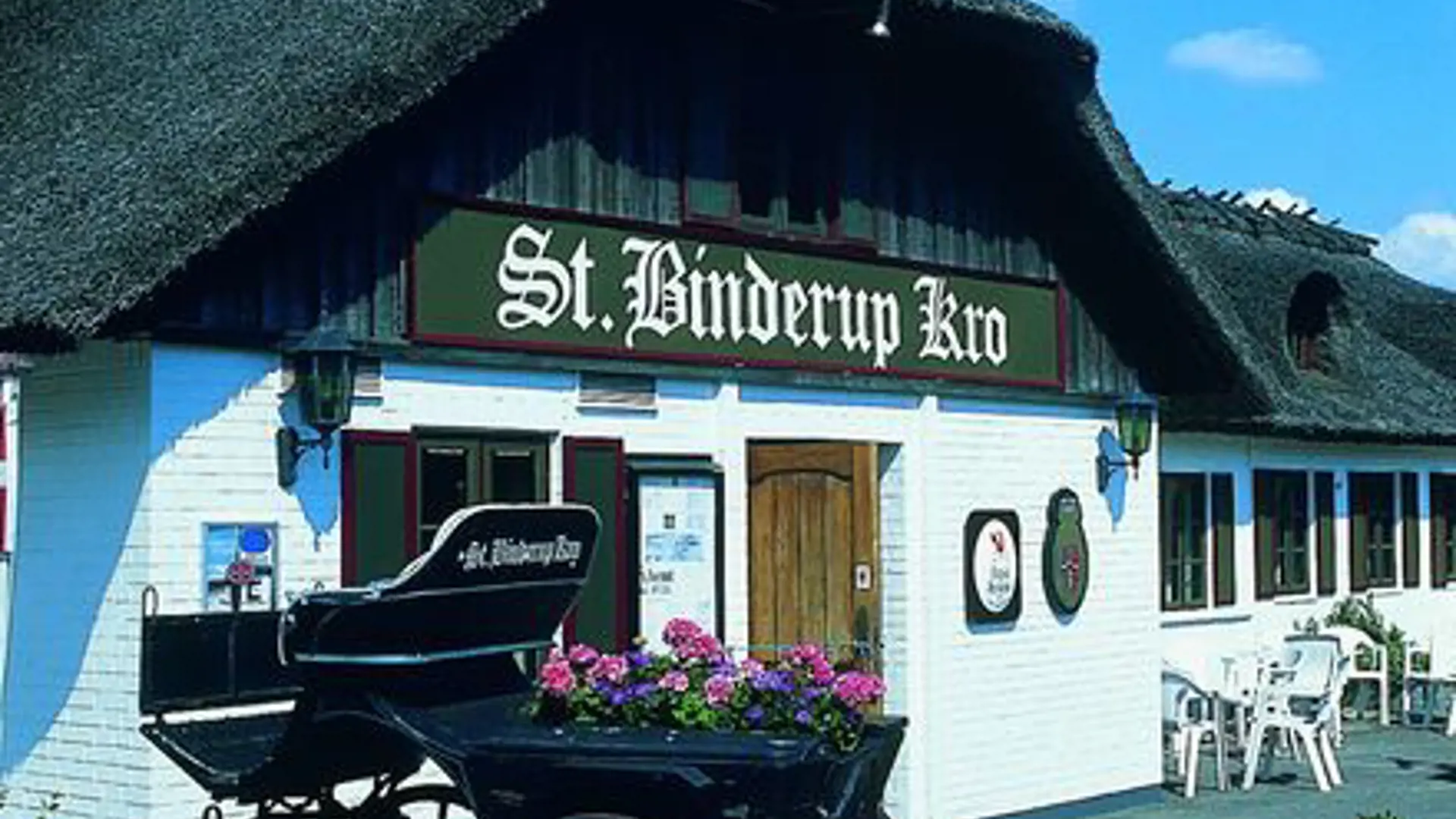
Arrival all days in 2022
Includes per person per stay:
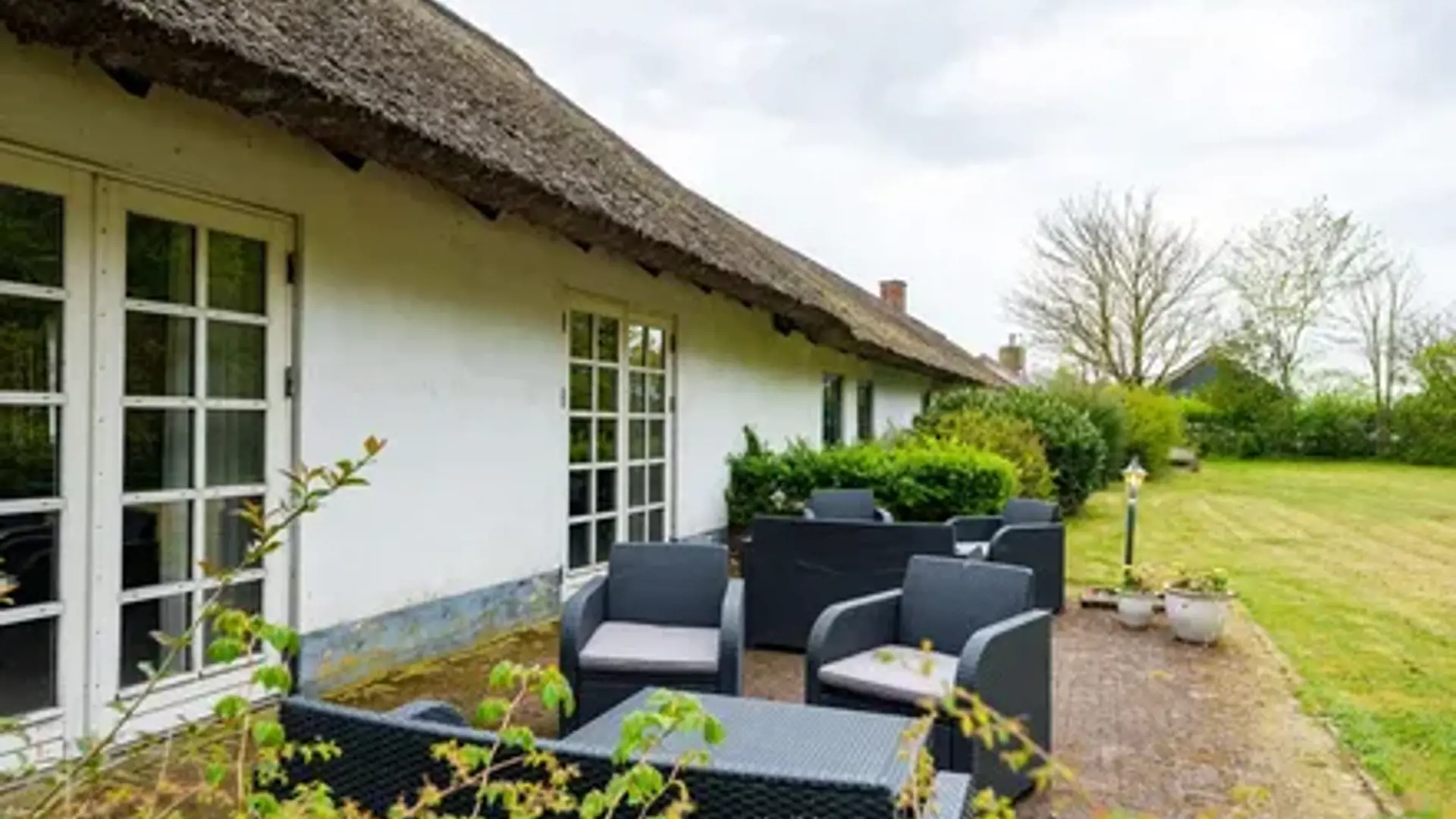
No breakfast included
Includes per person per night:
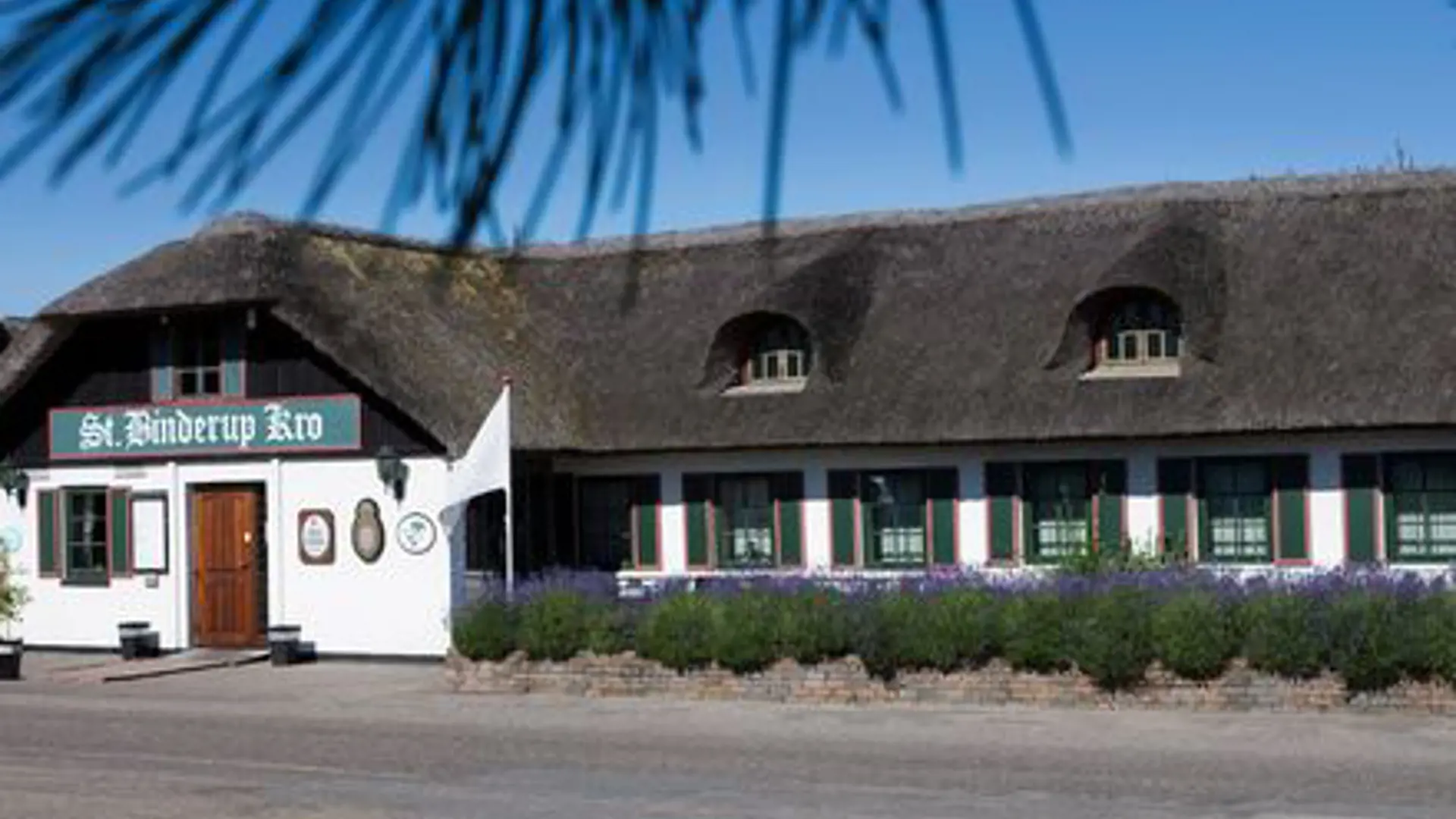
Minimum 3 days / 2 nights
Includes per person per night:
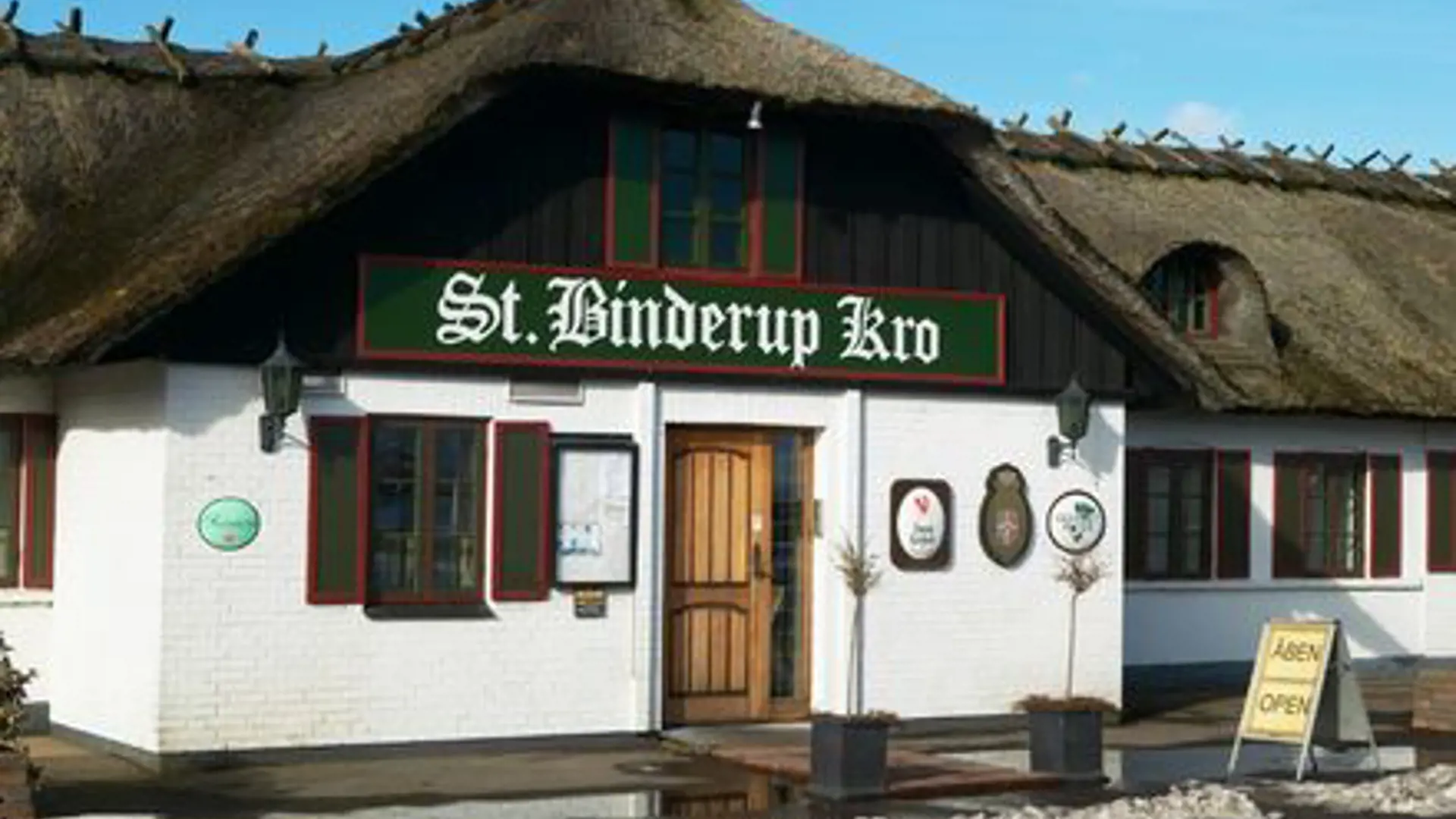
No breakfast included
Includes per person per night:

Opholdet inkluderer pr. person:

Oplevelsesgavekort med Produktid: 25031648
Inkluderer for 2 personer:

Oplevelsesgavekort med Produktid: 25021549
Inkluderer for 2 personer:
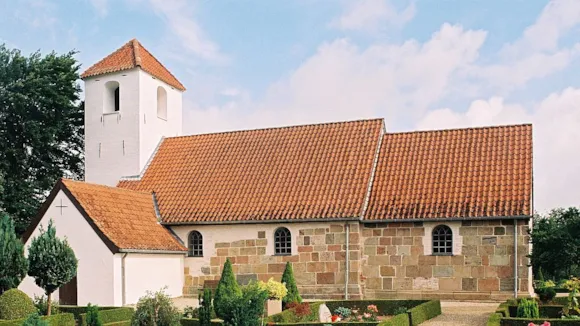
3.02 km
Church of Binderup
Village church
The church was built in Romanesque style 1050-1200. Approximately 1500 of the slender tower was added. The church has been rebuilt several times and renovated - the latest from 1998 to 2002. The chorus is as redecorated. The pulpit is from the year 1600th The church is closed, but you can make an appointment for a visit with the clerk.
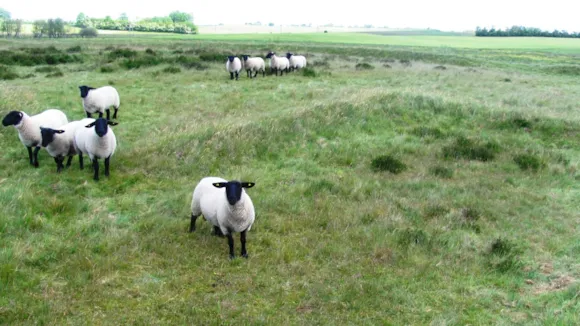
4.95 km
This fort is the oldest place of refuges, and it is located approx. 3.5 kilometres south of Aars. The fortress was constantly occupied from 250 years BC until 150 years BC. But, according to archaeological excavations, the fort was used from 300 years BC to 150 years BC, where it was deserted for some years. Then from approx. 100 years BC, the construction of the village started, which was fortified with sharpened oak logs.
The fortress was found in 1929, when a farmer was digging in the bog. He found the cobbled road, which went through the bog to the elevated area of the fortress. The fort cover around 1 hectare, and today, it has been reconstructed which allows one to experience how the village were. Only the inner of the two original ramparts have been preserved.
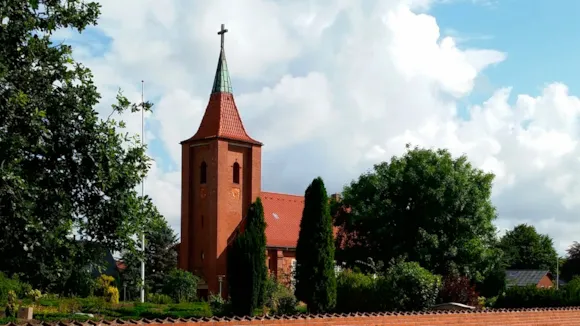
5.7 km
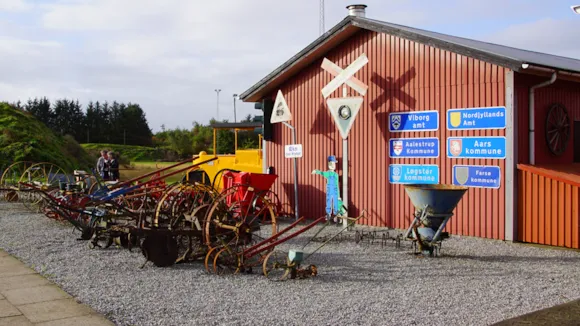
7.04 km
The story of the Danish Present-Day Museum begins in the late 1980s when the now-deceased lawyer Gorm Pedersen from Aars returns home from a trip to Canada. There, he had seen an impressive museum filled with items and memories from the last 100 years. Excited by his experience, he establishes a foundation and engages a group of volunteers.
In May 1994, the Danish Present-Day Museum opens its doors with a newly established collection in a disused smallholding provided by the then Aars Municipality. Since then, the collections have grown, as has the number of buildings. With the latest extension in 2012, the museum now has approximately 1200 m2 of exhibition space.
Most of the items in the museum come from the everyday lives of the Danes as it looked 10, 30, 50, or 100 years ago. Here, there is a hairdressing salon displaying old curlers with wires and electricity. There is a 1930s home with contemporary kitchen utensils. In one corner, a general store is arranged, which many of the local visitors recognize. There is also a schoolroom set up as a village school from the first half of the 20th century.
In the agricultural section, there is an exhibition that covers the history of dairies from milk in glass bottles to bagged milk and today's carton milk, along with a miniature dairy in exact scale with both light and moving mechanics.
In the mixed country store, products like Rich's coffee substitute, bluing, and other fun "old" goods can be found. In the radio/TV section, there are old radios, portable gramophones with period-appropriate records, old and newer televisions, as well as modern equipment like boomboxes and videocassette recorders.
There is something to see for all guests of all ages. There is toys, dolls, calculators, computers, peat excavation tools, and old craftsman's tools. There are also shoemakers, saddlers, printers, and much, much more.
The core element of the Danish Present-Day Museum is voluntarism. All the objects have come as gifts, for example, from estates, heirs, and people who wanted to preserve the history of the Danes and their own for posterity.
The volunteer museum personnel meet diligently every Wednesday to perform repairs, arrange exhibitions, build, and clean. Among the retired enthusiasts with different professional backgrounds, there is no one with any special qualifications for museum operation. For the volunteers, it is the joy that drives them.
As part of Vesthimmerland Museums' Cultural Heritage Month in June, the Danish Contemporary Museum has an exhibition of clothing and teaching materials from the 20th century.
For further information, prices, and opening hours, visit www.dansk-nutidsmuseum.dk
Accessibility:
Parking near the main entrance
Handicapped-accessible toilet
Stable ground
Handicap-friendly doors
Placement of inventory for easy access by wheelchair users
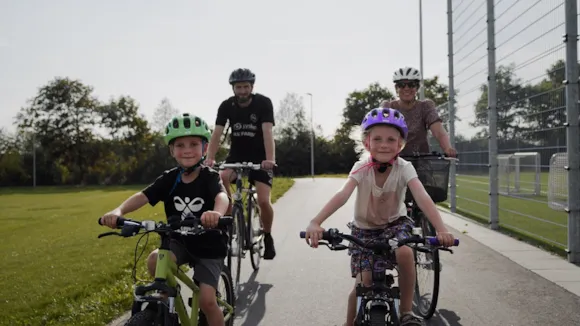
13.44 km
Welcome to the 1,000-meter trail in Farsø Fælled!
You may have already guessed it, but the trail is exactly 1 kilometer long and is part of Farsø Fælled, where it winds its way through charming surroundings with gentle curves.
Farsø Fælled and the 1,000-meter trail are highly popular attractions for jogging, cycling, hiking, and rollerblading, especially thanks to the newly paved asphalt that enhances the experience. Furthermore, the entire trail is illuminated when darkness falls.
During your journey through Farsø Fælled, you'll also find other activities related to the 1,000-meter trail, including a large asphalt hill that is extremely popular for conditioning runs, fitness, and races.
If you're the type who prefers to try to beat your own time record on a 1-kilometer distance, there is also a large timing clock available for free use, which is clearly visible almost all the way around.
So, with a trip to Farsø Fælled, it's guaranteed that the whole family can have an active and enjoyable time together!
Opening Hours: Always open
Admission: Free
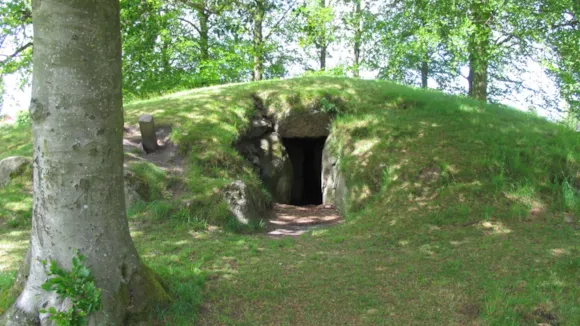
15.67 km
This passage grave is from the early Stone Age, 2,300-2000 BC. The passage grave is 8 metres long and has 5 capstones. A small sub-chamber can be found at the side. These sub-chambers are also known from French and English passage graves from this period.
Remember a flashlight.
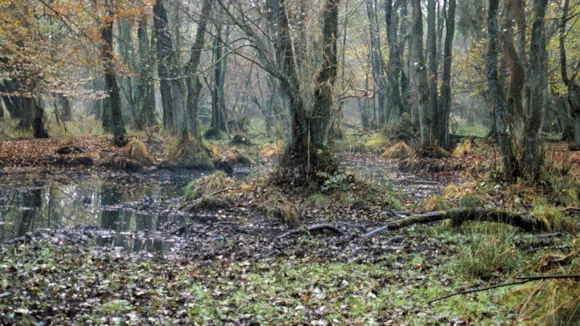
16.46 km
Hidden away in the river valley of Sønderup Ådal, you will find the mill called Højris Mølle, which is part of Skivum Nørrekrat. In this beautiful nature, you can find a mark of Jutland: an oak thicket.
The mill farm is placed centrally in the area, and has from the Middle Ages to early 1900 served as a watermill. It has also been a central meeting place for the local farmers. The mill farm slowly became more dependent on forestry, which begat the oak thickets.
A variety of nature
Højris Mølle contains some of the most varied nature sights in Denmark, both with oak thickets and the creek of Sønderup Å, which cuts through the area. The oak forest, especially, is unusual, because it is planted as an attempt to recreate the old, Danish forest, where livestock roamed among the trees.
Between the oaks, there is an abundance of other plants, such as rowan trees and blueberry bushes. In the more open areas of the meadows by the creek, you can find juniper and heather. On the website or in their folder, you can find a route that will take you through the greatest nature experiences.
Access and accommodation
The entire area is accessible both day and night for those on foot. Biking is only allowed on the gravel paths in the area. You can camp out within the tent site at Højris Mølle, where you can also light bonfires. Be advised that all dogs must be leashed, and fishing in the creek is not allowed.
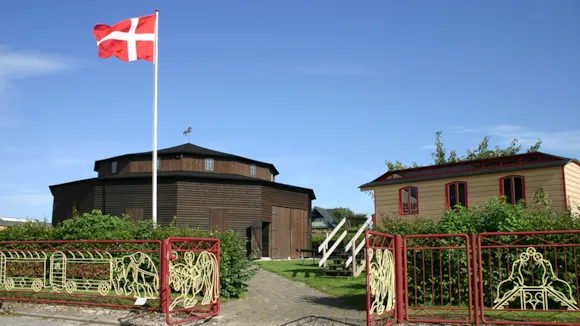
17.55 km
Unleash your inner clown, balance plates on a stick, or dive into 200 years of Danish circus history. At the old winter quarters of Circus Miehe in Rold, visitors are welcomed into a magical world where they can experience both the glamorous life inside the ring and the tougher life outside.
Circus wagons, glittering costumes, old posters, and circus artifacts are on display, and in a special area, equipment and costumes are available for visitors to play circus performers themselves. Right next to the museum is the more than 100-year-old, twelve-sided riding hall - built in wood with a real circus ring.
Visit nordmus.dk to learn more about events and the possibility of hosting children's birthdays at the museum, which also has a lovely little shop offering everything a true circus enthusiast could desire.
For opening hours and more, please see here.

17.81 km
Discover the whole world in miniature, with lakes, rivers, mountains and flags! Widespread as an atlas, The World map lies at the shores of the lake with beautiful green open spaces ...
There is a playground, activities and puzzles for the entire family. You can go sailing in the Pacific, try pony riding or a horse-drawn carriage in the summer season, mini golf and much more.
There is shop, cafeteria and picnic area with a view of the whole world. The glass pavilion can be reserved for groups.
Guided tours are available upon request.
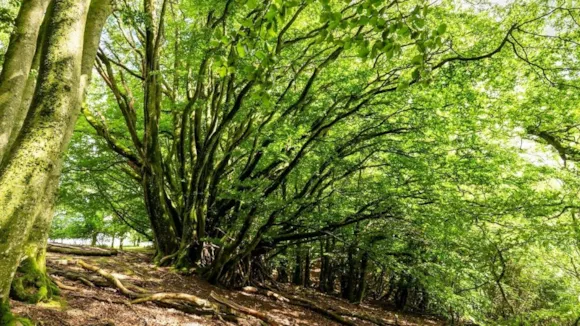
18.3 km
Rold Forest is Denmark's largest connected forest, covering an area of 8.600 ha. The forest is comprised of several forests, such as Hesselholt, Nørreskov, Nørlund Skov and Rold Vesterskov. Combined, the area is called Rold Skov.
Three large estates own 75% of the forest, while the remaining 25% is administered by The Danish Nature Agency.
The trees of Rold Forest
Rold Forest is primarily coniferous forest. The sandy and gravelly moraine earth, combined with heavy rainfall, makes the area very suitable for the coniferous trees. The forest is known for its large and dense stand of old spruce, unfortunately, a storm in 1981 heavily thinned them out.
Since 1850 many different species of coniferous trees have been planted. Besides common spruce and scots pine, several North American wood species have been planted, such as Douglas fir, Sitka spruce, noble fir and giant fir.
The story goes that a forester wanted to plant the various trees, but his supervisor prohibited him from doing so. Nevertheless, the forester planted the trees anyway, which we can appreciate today. The trees have become an important part of the forest. If you want to see these impressive old giants, visit 'Jætternes Baghave', known as ‘Garden of the Giants’ in English. It is located in Hesselholt Skov, close to Store Økssø.
While Rold Forest primarily consists of coniferous trees, an effort was made to safeguard some of the old, picturesque beech forest in the area. The largest stand of old-growth beech forest can be found in Rebild Bakker, the troll forest and the Old-growth Forest. In Rebild Bakker and in the troll forest, some of the beech trees have multiple stems and are twisted and crooked. Much of the older beech forest in Rold Skov is left as untouched forest, meaning that no trees are cut down and self-seeded trees are left to grow. Moreover, if a tree dies or falls, it will be left as it is.
The forest garden of Jutland was opened to the public in 1970. Here you can find more than 150 different species of trees and bushes from all over the northern hemisphere.
The unique geology and nature of Rold Forest
In Rold Forest you can experience an unusual geological phenomenon, known as sinkholes. The sinkholes are created when the rainwater seeps through the forest ground, which makes the water acidic. The acidic rainwater then seeps through cracks in the limestone, slowly dissolving the limestone, creating a cavity which grows larger as time passes. The sinkhole is formed when the surface layer finally collapses. Smaller sinkholes of 4-5 meters are quite common, especially in Nørreskoven, located north of Rebild. Hestegraven is one of the more famous and sizable sinkholes in the area. The name comes from an old tale, in which a horse-drawn carriage suddenly disappears into a hole in the ground. Another well-known sinkhole is the one called Røverstuen. Here, the story goes that the robbers from Rold used the sinkhole as a hide-out, laying in wait for travellers passing by.
Aside from the interesting geology, Rold Forest also has fascinating flora and fauna. In the forest you can find the very rare Lady Slipper Orchid, blue anemone and red helleborine. Furthermore, the forest is home to an abundance of wildlife, such as foxes, badgers, red deer, bats and birds. The flora and fauna of the forest can be experienced throughout the year.
Hiking trails and mountain bike trails in Rold Forest
In the Rold Forest area, there are a wide number of marked trails. Some of the most popular trails is the Rebild Bakker Rute and Den Gastronomiske kvalitetssti.
Download a map of Rold Forest hiking trails here. OBS. the map is only in Danish.
Rold Forest is a great place for mountain biking. You can find a map with mountain bike trails here. Make sure to follow the guidelines and only bike on trails appropriate for your level. OBS. the map is only in Danish.
The history of Rold Skov
The northern and southern part of the forest has a rich history, dating back to the Neolithic Age and the Bronze Age. Burial mounds and dolmen from these periods can be found in all parts of the forest, however, the highest concentration can be found around Bjergeskoven which is found north of Rebild. Some of the most impressive burial mounds are located here, such as Stenstuen and the two Bronze age mounds Svinehøjene.
In the forest you can find several old sunken lanes. Sunken lanes start as normal roads at ground level, but over time the roads are eroded away by centuries of use, creating a ditch in the landscape. When one road became too troublesome to use, a new road was made. The best known sunken lane in the area is Hulvejen, the road leading up to the tourist office RebildPorten.
Everywhere in the forest, you can find signs of charcoal making from the past. The extensive scale of charcoal making in Rold Forest required large quantities of wood and contributed to a significant reduction of the forest. Today, only one charcoal burner guild exists. They make charcoal once a year, where the public is invited to watch and participate.
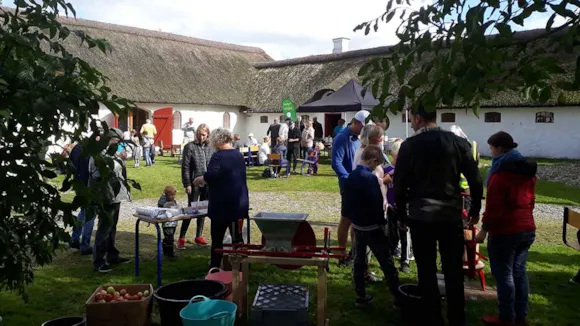
19.73 km
The centre is situated 10 km south of Nibe. The theme for the exhibit in the old barn is agricultural history. See the old farm tools and read the plates that have information about family living conditions in the countryside from the time period 1900–1950. Furthermore, you can experience Northern Jutland's beautiful photography exhibit on projects on restoring nature in Halkær Ådal.
In the mill from 1664, you can see the millwork and read about water mill techniques and the history of Halkær Mill.
If you are interested in a tour of the mill or the surrounding nature, please call +45 99 31 19 55.
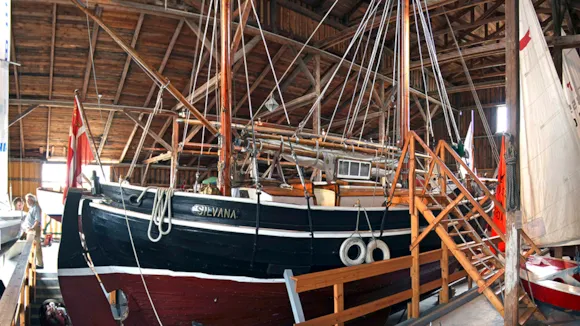
19.8 km
In total, there are about 30 wooden boats exhibited in the museum - from the smallest Optimist dinghy to the yacht Silvana, which guests can board. The warehouses themselves are worth a visit. They were built in the 1930s and were previously used by Hobro Grain.
All aspects of life on and around pleasure boats are represented in the museum, which is housed in two old warehouses at Hobro Harbor.
See the old boats. Feel the scent of tar and wood. Enjoy the impressive wooden structures of the buildings. There are ships, drawings, maps, and models to see, and there will be special exhibitions.
A cavalcade of boat types, from the yacht "Sylvana" from 1895 to the modern sailboard, is exhibited along with, among other things, communication, navigation, and rescue equipment.
A fantastic maritime museum.
See opening hours and more here.